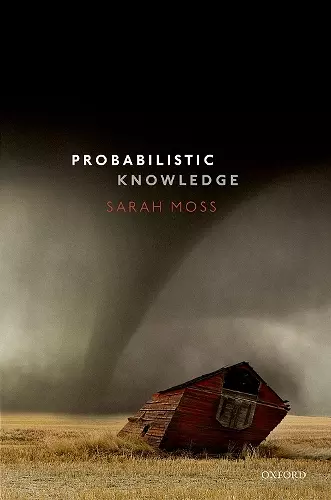Probabilistic Knowledge
Understanding the Role of Credences in Knowledge
Format:Hardback
Publisher:Oxford University Press
Published:22nd Feb '18
Currently unavailable, and unfortunately no date known when it will be back
This hardback is available in another edition too:
- Paperback£27.99(9780198858096)

In Probabilistic Knowledge, Sarah Moss argues that credences can also constitute knowledge, reshaping our understanding of belief and knowledge across various philosophical domains.
In Probabilistic Knowledge, Sarah Moss presents a compelling argument that credences, in addition to full beliefs, can serve as a form of knowledge. She introduces the concept of probabilistic content, illustrating its critical role not only within epistemology but also in the broader realms of the philosophy of mind and language. Moss suggests that just as individuals can believe and assert propositions, they can also engage with and assert probabilistic contents. This perspective invites readers to reconsider traditional philosophical views on knowledge and belief.
Moss explores how credences, such as a 0.4 belief that it is raining, can constitute knowledge similarly to full beliefs. She emphasizes that one can possess knowledge about probabilistic situations, like the likelihood of rain leading to overcast conditions, which shifts the focus from fixed propositions to more nuanced probabilistic understandings. This shift has significant implications for various philosophical debates, including those concerning the semantics of epistemic modals and the nature of perceptual experience.
The insights offered in Probabilistic Knowledge extend beyond theoretical discussions, addressing real-world issues such as the evaluation of female speech, the sufficiency of statistical evidence in legal contexts, and the ethical implications of racial profiling. By advocating for the recognition of probabilistic knowledge, Moss not only enriches our understanding of mental states but also underscores our collective responsibilities towards one another, challenging us to think critically about how we evaluate knowledge and belief in everyday life.
- Winner of Winner of the APA 2020 Sanders Book Prize.
ISBN: 9780198792154
Dimensions: 242mm x 163mm x 24mm
Weight: 586g
282 pages